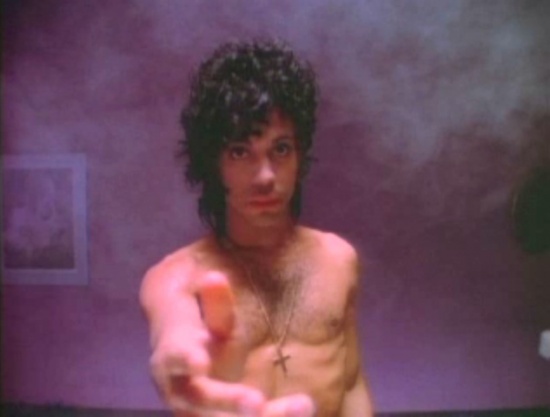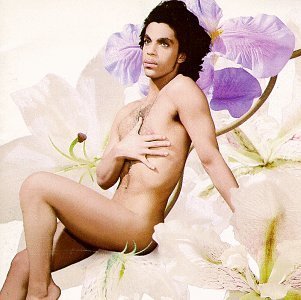On Christmas Day in 1983, cassettes of Rock ‘n Soul Part 1 by Hall & Oates and Billy Joel’s An Innocent Man were waiting under the tree for me. And since none of you can prove otherwise, let’s say that I didn’t receive Air Supply’s Greatest Hits as well. I was a 13-year-old suburban kid raised on AM radio, and I didn’t have an older brother who was into Violent Femmes or Afrika Bambaataa or anything, so I was thrilled with these gifts (and with Heartbeat City by The Cars, which I would score on my 14th birthday in May). I loved pop music, but like most youngsters, I had no appreciation for subtext or complexity. I was immediately grabbed by the synth-pop hooks of The Cars, and by Billy Joel’s wordplay, and by the simple yet lovely melodies of Air Supply (would you stop looking at me like that, please?), and that was as deep as it got.
Prince? By the summer of 1984, I had literally only heard two songs from his four pre-1999 albums. “I Wanna Be Your Lover” was a perfect pop song, and one of my favorite songs of 1979. Its suggestiveness sailed right over my 9-year-old head, of course. I immediately knew something deeper was going on when I heard “Controversy,” but I had no idea what that might be. I caught the album version while making a rare exploration of the right side of the AM dial when I was 11. A few seconds in, it already sounded like nothing I had heard before, and by the time Prince recited the Lord’s Prayer and chanted “I wish we all were nude,” I nearly broke out in hives. But the song would soon fade from my consciousness as I journeyed back to 610 KFRC, where “Controversy” was not bumping “Jessie’s Girl” off of the playlist.
“1999” and “Little Red Corvette” stormed Top 40 radio in 1983, and, as a human with functioning ears, I found them irresistible. Still, I had little appreciation for their lyrical audacity or their shattering of musical genres. On the Billboard Hot 100 for 1983, “Little Red Corvette” is nestled between Toto’s “Africa” and Styx’s “Mr. Roboto,” and in my worldview, that made perfect sense. I wasn’t quite ready to peel back the layers of “When Doves Cry,” the #1 single of the summer of 1984. I remember watching the music video, where a naked Prince emerges from a steamy bathtub and beckons the viewer to join him.

My heart was racing, but I told him “I… I… I’ve got homework to do” as I scampered out of the room.
And so, like most true fans, I have Harrison Ford to thank for opening my eyes to the power of Prince’s music.
***
In August of 1984, some friends and I went to see Indiana Jones and the Temple of Doom, which had finally made it to our small-town movie house after opening in May. We were crushed to learn that the Spielberg blockbuster was sold out, and we begrudgingly decided to see the only other film that was playing at the theater: Purple Rain. The summer of 1984 was an inescapable Princely pop culture avalanche that we were collectively sick of, but the Seavue Twin was pretty much the only entertainment option for a group of 14-year-olds in Pacifica, so Purple Rain it was.
As I watched the movie, I quickly became enamored with the clownish funk of the Time, but despite the raucous performance of “Let’s Go Crazy” that opened the film, I still couldn’t quite get on board with Prince. I wasn’t equipped to process the shrieking of “The Beautiful Ones” or the shredding of “Computer Blue” or the stage humping of “Darling Nikki.” My friends and I spent the first hour laughing at the obviously amateur cast, although things became somewhat quieter as the story took a darker turn. When Prince’s character somberly took the stage following his father’s suicide attempt, I had no idea that Hall & Oates were minutes away from being a part of my past.

After an awkward silence and a mumbled introduction, the Revolution laid out the opening chords of “Purple Rain.” I had heard the radio-edit of the song that summer and hadn’t been impressed with it, but within the context of the film, Prince’s emotional performance was riveting. During the final chorus, the giggling teenagers in the theater waved their hands at Prince’s urging (“if ya know what I’m singing about up here, come on raise your hands”), and while most of them were being sarcastic, I was secretly being sincere.
The song then continued past the radio cutoff to reveal a soaring solo that I had never heard before, and I was mesmerized. Prince fought his guitar as if it was trying to escape him, beating out a series of seemingly random sounds that somehow struck me as beautiful and moving. He eventually stumbled upon a simple mid-tempo riff and repeated it again and again with increasing desperation, grinding hope, frustration, glory and countless other emotions out of his helpless instrument. The solo eventually gave way to Prince’s majestic howls of redemption, after which he triumphantly revisited the guitar riff a few times before leaving the stage.
I did not have the vocabulary to describe it, and judging by that last paragraph, maybe I still don’t. But a door had been opened to a vast and vivid new world that only moments ago I was completely unaware of. Nothing I had heard before had prepared me for (or even hinted at) this world. Granted, Air Supply seemed pretty shaken up when they realized they were all out of love, but it wasn’t the same. The idea that a guitar can convey so much more than a lyric sheet may seem obvious to mature music fans, but it was a revelation to me at the time. In seven minutes, my entire outlook on music had changed. The film’s final performances of “I Would Die 4 U” and “Baby I’m a Star” were simply a coronation. A lifelong Prince fan was born.
If Indiana Jones was a little less popular, would I have got there on my own? I mean, I wouldn’t be an Air Supply enthusiast, okay? College girls would have beat that out of me. But beyond that? It’s impossible to tell. Maybe I would have enjoyed Purple Rain on HBO that fall, but wouldn’t have been spellbound by the guitar solo as heard on the tinny speakers of our 20” Zenith. I’d still be a casual fan, but keep in mind that Prince provided annual excuses for casual fans to jump off the bandwagon.
1985: Prince releases Around The World In A Day, an abrupt right turn after Purple Rain
1986: Under The Cherry Moon bombs spectacularly on the big screen
1987: The Revolution is unceremoniously disbanded
1988: An airbrushed Prince absurdly poses naked on the cover of Lovesexy

I could have checked out at any time, leaving a void to be filled by… Metallica? Dungeons & Dragons? Ayn Rand? Maybe right now you’d be reading Yes Can Do, my wildly popular Hall & Oates blog. I’ll never know. When the Purple Rain guitar solo opened a door to a new world that August night in Pacifica, I walked through, and the door closed behind me. There was no going back. He could have followed up Lovesexy with a double album featuring only bagpipes and armpit farts, but I wasn’t going anywhere. In my Prince fan origin story, that guitar solo is my radioactive spider.

By the second paragraph I was cold and goose bumpy, I do live in Pacifica but I was not reading outside. I had my hoodie and down booties on. So — good!
LikeLiked by 1 person
Some more silliness regarding the When Doves Cry video here: https://califragisexy.com/2016/07/08/who-wore-it-best/
LikeLike